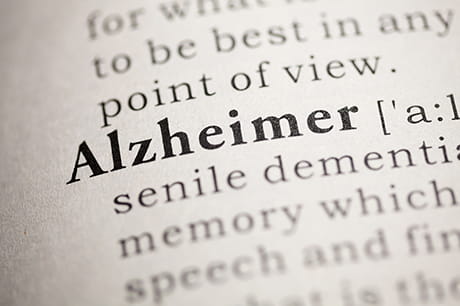5 myths about Alzheimer’s disease
Facts about Alzheimer’s and its symptoms
There are many myths and misunderstandings about Alzheimer’s disease circulating online and by word of mouth. In a well-meaning attempt to comfort someone who has the disease or support a family member battling it, people often share what they have heard or what happened to someone they know with Alzheimer’s. It’s helpful in some cases, but usually it creates additional confusion about an already complex disease.
“As with every medical issue, your questions and concerns about Alzheimer’s are best addressed by your doctor,” said Maya Lillyan Lichtenstein, MD, a neurologist at Geisinger Wyoming Valley Medical Center. “It’s the surest way to learn about the disease, its causes and the symptoms to look for if you’re at risk.”
Myth: Alzheimer’s and dementia are the same
Alzheimer’s and dementia are not the same, even though many people use these terms interchangeably. Dementia means a change in mental abilities—such as memory, problem solving or language—that interferes with function. Alzheimer’s is the most common form of dementia, but not the only cause of it.
“Alzheimer’s accounts for up to 80 percent of dementia cases in people over age 65,” said Dr. Lichtenstein. “It’s different than some other forms of dementia, such as untreated sleep apnea, because it gets progressively worse over time, and it’s irreversible.”
Myth: Alzheimer’s only affects older people
The majority of people with Alzheimer’s and other dementias are 65 years old or older. However, there is a form of the disease known as early onset Alzheimer’s that occurs in people in their 40s and 50s. Currently, more than 200,000 Americans have this form of the disease.
“The early onset form of the disease can be difficult to diagnose, and the symptoms can be different than when it strikes older people,” said Dr. Lichtenstein. “A doctor who specializes in Alzheimer’s will use a combination of cognitive tests and brain imaging to make the diagnosis.”
Myth: You’ll get Alzheimer’s if your parent has it
There is a genetic component to Alzheimer’s disease, which means it can be more likely to run in families. If you have a close relative with Alzheimer’s, your risk for developing the disease is a little higher. However, it’s not guaranteed. There are two types of genes that cause diseases: risk genes and deterministic genes. Having a risk gene means your risk is elevated; a deterministic gene means you will definitely develop the disease. Most cases of Alzheimer’s that seem to run in families are associated with the risk gene type. Only a small subset of Alzheimer’s disease cases – around 1 percent – are caused by deterministic genes.
“If you have a family member with Alzheimer’s disease, it’s important to keep in mind that there is absolutely no guarantee you will develop it,” said Dr. Lichtenstein. “You should be more vigilant about potential symptoms, but there’s no need to live life in fear.”
Myth: Aluminum, aspartame and flu shots cause Alzheimer’s
There have been rumors that drinking from an aluminum can, using artificial sweeteners, having mercury in your dental filings and getting vaccines like the flu shot cause Alzheimer’s. There is no scientific evidence to suggest any of these environmental factors causes Alzheimer’s.
“In reality, we haven’t pinpointed exactly what causes Alzheimer’s unless it is caused by a deterministic gene,” said Dr. Lichtenstein. “It’s likely not any single cause, but a combination of genes, environment and lifestyle that increases or decreases someone’s risk.”
Myth: Memory loss is a normal part of getting older
Aging is the biggest risk factor for developing dementia, but it is not normal aging. Aging does bring some cognitive slowing and the occasional “senior moment.” However, if your memory loss extends beyond misplacing your car keys once in a while or taking longer to remember someone’s name, you should discuss it with your doctor.
“Many people stay sharp well into their 80s and 90s,” said Dr. Lichtenstein. “If you or someone close to you notice significant decline in your memory or cognitive abilities, make an appointment for a checkup.”
Geisinger neurologist Maya Lillyan Lichtenstein, MD, sees patients at Geisinger Wyoming Valley in Wilkes-Barre. To schedule an appointment with Dr. Lichtenstein or another Geisinger neurologist, please call 800-275-6401 or visit Geisinger.org.

